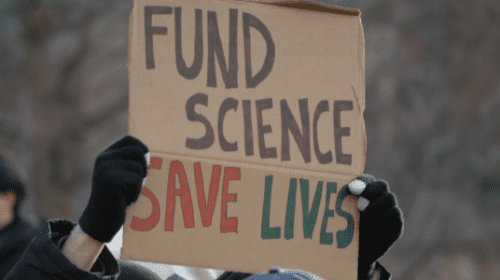Last month, the United States Drug Enforcement Agency (DEA) took steps to begin the process of reclassifying marijuana as a Schedule III drug, removing its more serious and punitive Schedule I categorization.
The move would significantly impact every stakeholder in the marijuana conversation, including those on both sides of the law during low-level possession and distribution charges, patients who use marijuana for medical conditions, the doctors who recommend it for treatment, and even those in the treatment and recovery communities.
While reclassification doesn’t legalize marijuana for recreational use, it marks the most significant policy change in 50 years and represents a clear institutional and cultural shift; namely by recognizing the mounting evidence of its potential medical benefits. Let’s explore what the difference in scheduling means and how it can affect different populations close to the issue.
What Is the Legal Difference In Scheduling?
There are significant differences between Schedule I and Schedule III drug designation.
● Schedule I – Drugs, substances, or chemicals are defined as drugs with no currently accepted medical use and a high potential for abuse. Examples include heroin, lysergic acid diethylamide (LSD), marijuana (cannabis), 3,4-methylenedioxymethamphetamine (ecstasy), methaqualone, and peyote.
● Schedule III – Substances or chemicals are defined as drugs with a moderate to low potential for physical and psychological dependence. Schedule III drug abuse potential is less than Schedule I and Schedule II drugs but more than Schedule IV. Some examples of Schedule III drugs are products containing less than 90 milligrams of codeine per dosage unit (Tylenol with codeine), ketamine, anabolic steroids, and testosterone.
Why Reclassification May Be Overdue
There are five schedules of drugs outlined by the DEA, with legal penalties for possession and distribution increasingly severe from Schedule V to Schedule I.
Advocates and policymakers have been calling for marijuana’s reclassification for years, based on emerging clinical findings regarding cannabis’ positive impact on a wide range of health conditions, the potentially life-destroying impact on low-level offenders in its current category, its disproportionate impact on already-marginalized communities, and, last but certainly not least, its comparison to other drugs which have been found to be much more dangerous.
For example, Xanax, which is a Schedule IV drug, is one of the most commonly prescribed benzodiazepines (benzos) in the country. Benzos were involved in nearly 11,000 overdose deaths in 2022, according to the National Institute on Drug Abuse (NIDA). On the other hand, the DEA has explicitly stated that while ER visits are on the rise, no marijuana overdose deaths have been reported.
In other words, while certain varieties and concentrations of cannabis have been found to be clinically beneficial, and no overdose deaths have been reported, offenses related to marijuana can be prosecuted with much harsher sentencing than a class of drug that’s been linked to thousands of overdose fatalities. Additionally, current scheduling suggests that benzos have a lower potential for abuse than marijuana, even as research indicates that misuse accounts for 20% of benzo use as a whole.
How Reclassification May Help in Treatment and Recovery
Reclassification efforts are being undertaken to account for the above revelations and discrepancies, but they can have a particularly positive impact on treatment recovery. For starters, recognizing the medical value of cannabis can make it easier for individuals to access safe dosages to manage opioid withdrawal symptoms.
It can also help create easier access to treatment for low-level or first-time offenders who are experiencing co-occurring substance use issues, such as alcohol or cocaine addiction. Greater understanding and less punitive sentencing can help facilitate entry into a treatment program when deemed necessary by a court.
Lastly, reclassification can help lessen both the legal and personal impact of a slip-up. For those in early recovery, catching a marijuana charge can jeopardize efforts to rebuild their lives with legal penalties many consider to be harsh and counterproductive. Anyone in recovery understands how hard it can be to get back on your feet after stumbling. Things happen, and people who experience a slip shouldn’t have their progress derailed by—what is increasingly regarded as—antiquated drug policies.
Proceeding with Caution
Let’s be clear: marijuana is not a harmless drug. Higher-THC concentrations of marijuana are linked to a wide range of adverse physical and psychological health effects. It’s also worth noting that cannabis use disorder is a real thing and that the evidence of cannabis in withdrawal management remains limited.
Finally, while the status of marijuana as a “gateway drug” remains the subject of vigorous debate, there is ample data to suggest a correlation between marijuana and more serious illicit drug use, including one international study that found 44.7% of individuals with lifetime cannabis
use progressed to other illegal drug use at some time in their lives, including cocaine, heroin, and others.
In the short term, reclassification can help lessen the potentially life-changing consequences for those who made a mistake while making it easier to facilitate clinical exploration regarding cannabis’s medical value in more and more context. In the long term, it can ultimately help to foster a more measured and informed understanding of marijuana’s positive and negative effects.
Getting Help for Marijuana and Other Substance Use Issues
When it comes to marijuana use, the reality is there are a lot of competing opinions about its safety and long-term risks, but all you need to know is how it’s affecting you or your loved one. Different people have different reactions to and relationships with this drug, and they can often include the escalation to other more serious substance use and mental health issues.
Recovery Unplugged is acutely aware of how marijuana use can shape and influence substance use and other behavioral health challenges, and we’ve helped thousands of people unravel this complicated relationship as they pursue treatment and long-term recovery. No matter what anyone may be saying about how “safe” or “dangerous” weed is, we’re here to help you cut out the white noise and get you the treatment you need.

























